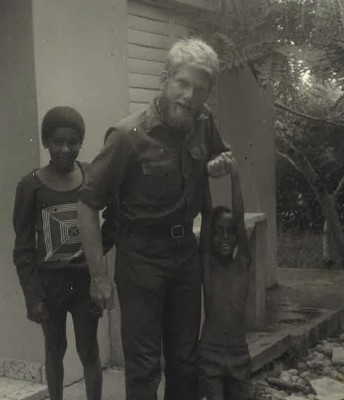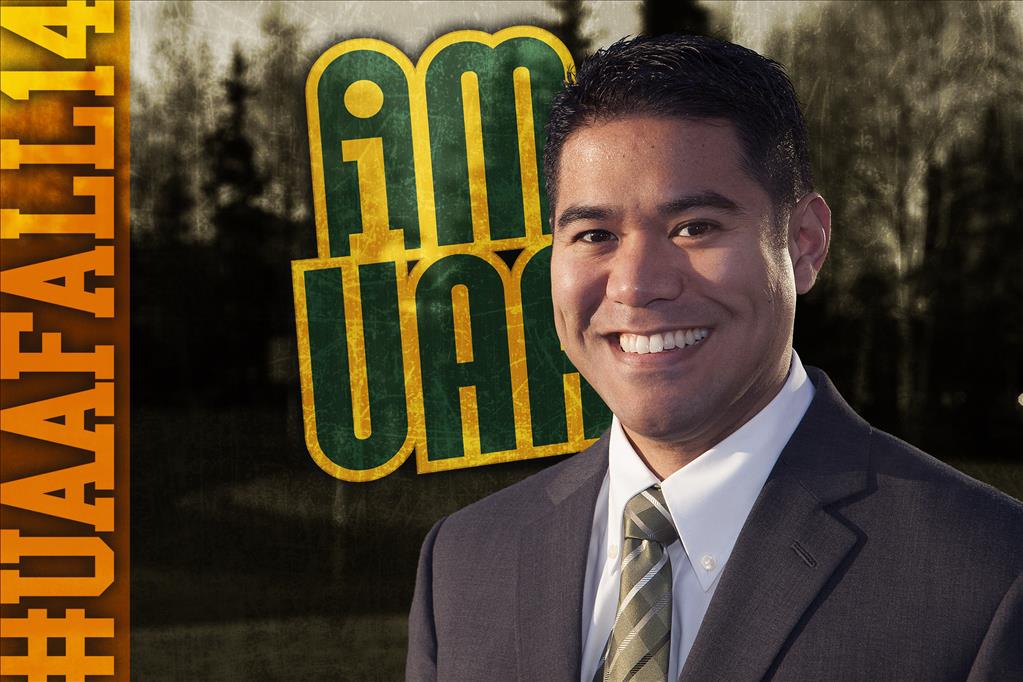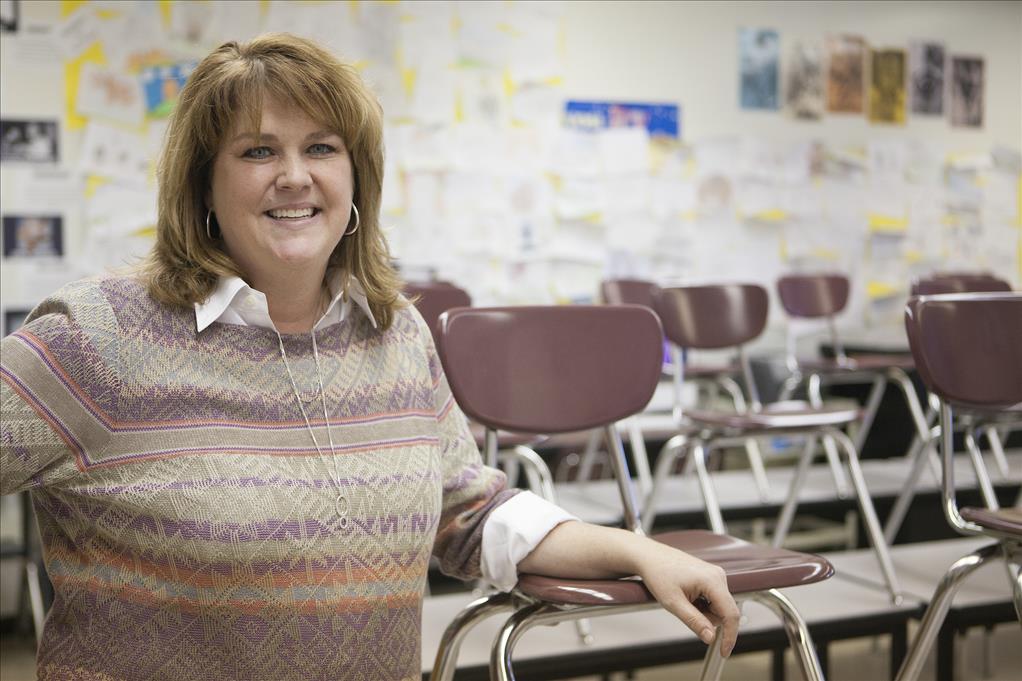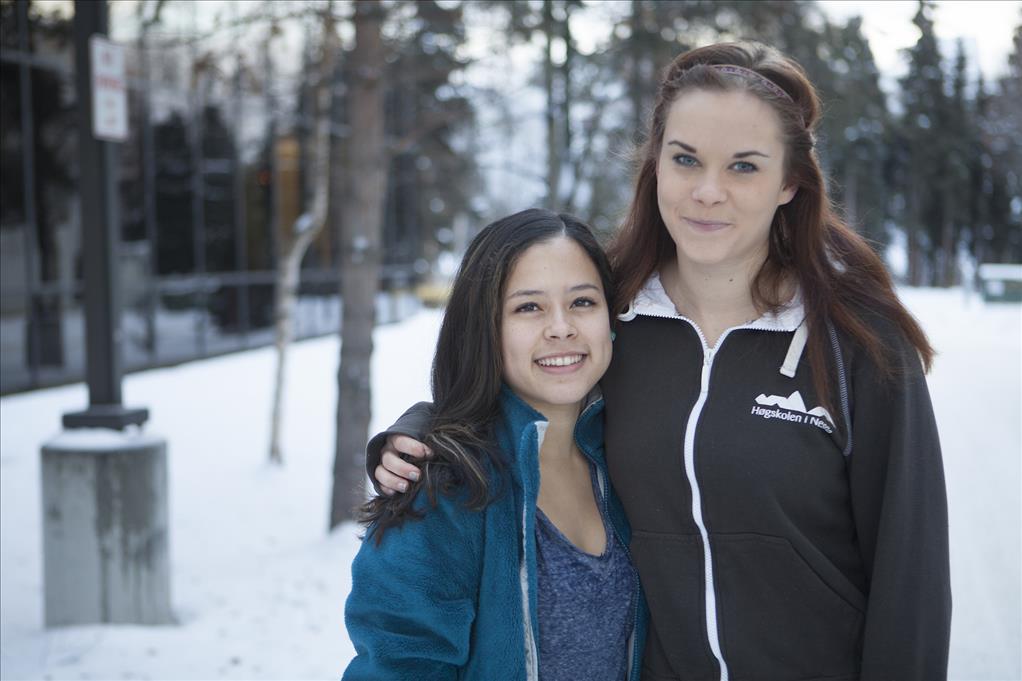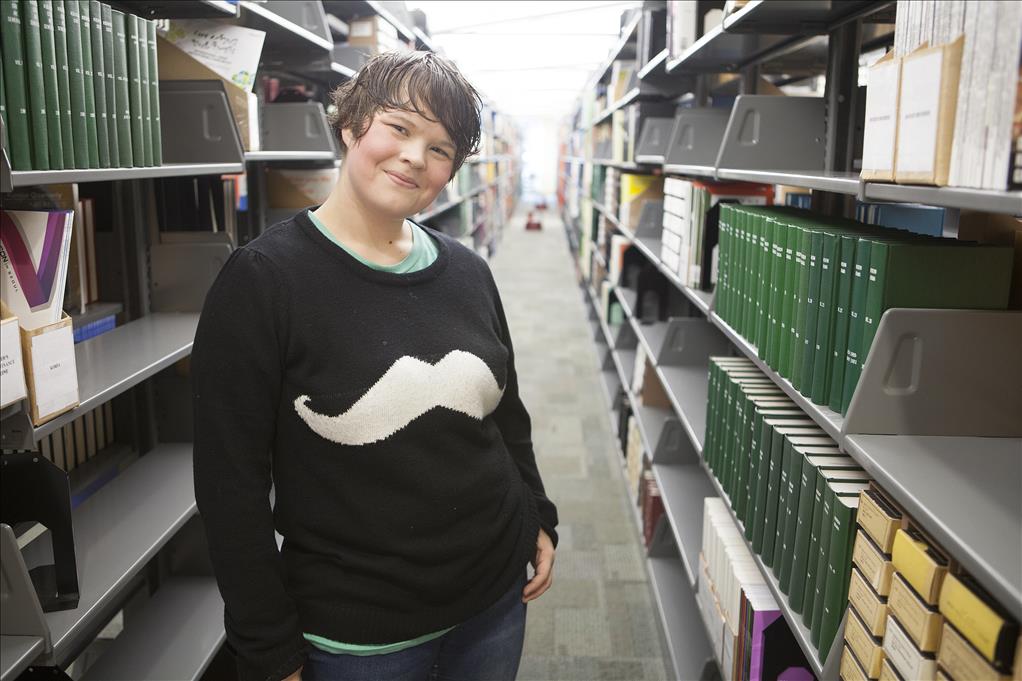Alumni tales from the Peace Corps
by joey |
Since President Kennedy launched the Peace Corps in 1961, over 215,000 Americans have served as volunteers in 139 countries. To date, 59 of those volunteers earned their undergraduate degree from UAA (three are currently overseas in Tanzania, South Africa and Jamaica, one more is on her way to Burkina Faso this summer). In addition, several more volunteers have earned a master's degree from UAA after returning home.
On Sept. 23, a Peace Corps recruiter will visit UAA for the first time in four years (click here to see her schedule of on-campus events). Below, five UAA alumni discuss how the Peace Corps experience affected their careers in development, education, public health and anthropology. More importantly, they share how the volunteer experience continues to shape their lives today.
Davin Holen | Mali 1997-1999 B.A. History '95, M.A. Anthropology '02
After graduation, Davin and his wife Cara joined Peace Corps and together they landed just south of the Sahara, tasked with natural resource management in a parched patch of West Africa. Their village's name, Kosaba, meant 'three streams' but only one waterway remained by their arrival... and it only appeared in the rainy season. Davin worked with the community on reforestation to halt the desert's approach while his wife focused on agriculture and education. On a return trip four years after completing their service, they were thrilled to see thousands of new trees and 80 students enrolled in a brand new school funded by the community.
The experience had lasting effects on both the community in Mali and on Davin's lifelong academic interests. "I was fascinated by the way that the subsistence lifestyle of the Bambara of West Africa was so instrumental in shaping their culture," he reflected. "I wanted to know how this applied to Alaska Native cultures as well."
Davin came home to Alaska and was the first graduate of UAA's applied cultural anthropology M.A. program. He now works as a subsistence program manager for Alaska Department of Fish and Game, advises and teaches in UAA's anthropology department and is pursuing a doctorate in anthropology at UAF. "I'm 100% Alaskan educated from preschool to Ph.D.," he added.
His research and work has taken him to the far corners of the Last Frontier- from the Arctic to the interior to "just about every community in Southcentral, Southwest, and Southeast Alaska"-and next year he'll shift his research to the Aleutians and Alaska Peninsula. He may well be among the most traveled Alaskans out there. "I'm sure it will take my entire career to understand if a people's subsistence patterns shapes their culture or whether it's the other way around," he noted.
As he observes his home state's immense diversity from village to village, he takes lessons from Mali with him. "I learned two things from the Bambara; the power of humility and importance of respect," he said. "As social scientists the only currency we have is the rapport we build with communities. I try to remain humble as I am always learning from those I work with in rural communities in Alaska."
Lisa McGuire | Haiti 1998-2001 M.P.H. '08

Lisa and her new neighbors on her first day in Gelin, Haiti. The village would be her home for next three years. (Photo courtesy of Lisa McGuire)
Lisa spent her early Saturdays lost in her town library's dusty basement, rifling through the gold spines of endless National Geographic issues and dreaming of places far from her New Hampshire home. In middle school, a returned volunteer talked to her class and she realized how to live those dreams. "I knew that I had to join the Peace Corps someday, there was no question," she said.
Placed at a Haitian farmers cooperative, Lisa built outhouses, schools and vegetable gardens, conducted HIV prevention talks and taught English to teenagers who, she admits, really just wanted key phrases to pick up girls.
The diverse experience certainly shaped her career aspirations. "During my time in Haiti, I saw firsthand the link between income and health status," she said. "I witnessed firsthand the devastating health effects that poverty and political corruption has on entire populations of people." When her village blamed voodoo curses for the HIV/AIDS deaths of her close friend Marie Lydie and Marie's 9-year-old son, Lisa knew public health was her path. "The M.P.H. program at UAA gave me a solid foundation in the principles and techniques needed to have a successful career in public health," she said.
That career later brought her back to Haiti. In 2010, Lisa and her husband were traveling in southern Africa, listening over the snap and crackle of their short-wave radio for details on a devastating earthquake that had just rattled Haiti. With her M.P.H. in hand, she spent the next two years working on cholera and HIV programming with the American Red Cross and Clinton Health Access Initiative. "It was powerful 'front line' public health work and it was extremely meaningful to me," she said of her return to Haiti.
"One of the greatest problems I have now after having served in the Peace Corps and then returning to Haiti as a public health professional is that no job, big or small, will ever compare to my time in the Peace Corps. Doors, hearts and minds were opened and there was great satisfaction and meaning in the work I did with the communities there," she said.
"It is truly the best decision I have ever made in my life."
Sunny Mall | Nepal 1995-1998 B.A. Mathematics '95, M.A.T. Teaching '95

Sunny's Nepali neighbors threw her a traditional farewell ceremony after her year in Bakamalang came to a close. (Photo courtesy of Sunny Mall)
Sunny Mall has made a career in education and currently serves as assistant principal at Homer High School. Her first classroom, though, was in rural Nepal in a village that still doesn't register on GoogleMaps to this day.
She first heard of Peace Corps as a child, when the program ran an advertisement during a late night Star Trek rerun ("I was a huge Trekkie as a child," she said) and she later had a high school teacher who spoke highly of the program. It was enough to set her on the path towards Peace Corps.
"Even before my first day of kindergarten I felt the call to teach and serve others and the Peace Corps seemed like a perfect fit for me," she said. "It was more about the service than about the call to adventure."
Sunny served an extended tour in Nepal, first teaching English and mathematics in a remote village school in Bakamalang. Her students ranged from first to tenth grade and spoke Magar, the regional language. The village was off the road system, the curriculum was in the national language and the entire experience had more than a few similarities to teaching in the Alaska Bush. She moved to Damauli, the district headquarters, in her second year to train teachers in English, PE and math methods. After extending her service into a third year, she wrote grants to provide resources for the country's nine primary teacher training centers.
Sunny continues to remain involved. Just like the high school teacher who encouraged her to consider Peace Corps, Sunny now visits classrooms to share her stories with middle and high school students. "It's been very rewarding for me," she added.
The best benefit was perhaps the most unexpected "One of the most rewarding experiences while serving overseas was my close friendship with my little Nepalese brother, Sunil Panthi, during my stay in the village," she said. "He taught me my Nepalese, would walk the 40 minutes to school every day with me, and ultimately I was able to host him in my home in Anchorage while he completed two engineering degrees at UAA.
"Lifelong friendships are just one of the many outcomes of service."
Löki Gale Tobin | Azerbaijan 2008-2011 B.A. Psychology '06, M.A. Rural Development '11 (from UAF)
Löki's parents moved to Nome chasing a remote, isolated adventure. But growing up in Nome, Löki, knew that sense of adventure only existed in the opposite direction, far beyond her remote hometown.
"I wanted that same great adventure that shaped some of the most important people in my life," she said of her decision to join the Peace Corps. "I wanted the experiences that would make me into the person I was truly meant to be." She also wanted to be practical, and the Peace Corps partnership with UAF was the right fit-a two-year placement that matched her career interests while also earning credits towards a master's degree in Alaska. She later extended her Peace Corps service an extra year and wrote a comparative thesis on indigenous self-expression in both Alaska and Azerbaijan to complete her master's degree at UAF in rural development.
"It has been over a year since I moved to Anchorage and I still struggle with how 3.5 years in the Peace Corps impacted my life, but I do see the benefit almost everyday," she said. "I now think that although volunteerism makes a world of difference for the causes we care about - donating financially has farther reaching affects. I have committed to donating at least 10% of my income each year. I am less ideal and more practical-recognizing how so many others live with so much less. It is my intention to live with less for the rest of my life."
"Overall, I would say what I want to do professionally has changed very little," she continued. "What has changed the most is how I interact with the professional world."
Löki now works for The Alaska Community Foundation, a statewide philanthropic organization that funds, among many areas, community development in small Alaska communities.
Her lasting advice to future volunteers: "If you are about to start service, bring a spork and a titanium reusable camping cup." For more insight, her blog Far From Nome documents her three years in Azerbaijan.
Eric Lespin | Dominican Republic 1985-1987 M.P.H. '14
Eric's Alaska background played well with the Peace Corps office in the application stage. "I was one of the relatively few PC applicants that had experience living without running water, building my own latrine etc.," he explained. "And they just loved that."
Peace Corps took that background, added his request to join a Spanish-speaking country, and placed him in the Dominican Republic focused on water and sanitation, specifically technical projects. But the more energy he invested into the village's infrastructure, the more he recognized the need for human-oriented development.
"What ultimately led me to pursue an M.P.H. at UAA was this work, which started out being framed as highly technical in nature and my evolving understanding that the technical, while important, is not central," he said. "In reframing water and sanitation from a technical understanding to a public health understanding I've realized you can frame almost any problem that confronts humanity with a public health dimension."
Eric recently finished his master's degree at UAA with an investigation project on water use and infrastructure. He took his time completing the degree as raising a family and opportunities in Bolivia, Haiti and Brazil kept him busy. Thankfully, the M.P.H. is largely online, so living abroad didn't stop his progress.
He's currently back in Anchorage, working occasionally as an interpreter, fixing an old home in Spenard and living in a Spanish-speaking household with his wife and daughter from the Dominican Republic. The family aims to live simply by biking around town, going paperless, even dropping the internet at home (a decision his teenage daughter wasn't thrilled with).
"The Peace Corps educates you very quickly on what you can get by without, and that definitely has affected my life coming back to the United States," he said of the Peace Corps experience. "You realize what we consider essential needs for our security or our wellbeing or just our comfort, as often as not, can get in the way of us having a fulfilling life."
Want to learn more? Click here for the list of Peace Corps events in Anchorage Sept. 22-23.
Written by J. Besl, UAA Office of University Advancement.
 "Alumni tales from the Peace Corps" is licensed under a Creative Commons Attribution-NonCommercial 4.0 International License.
"Alumni tales from the Peace Corps" is licensed under a Creative Commons Attribution-NonCommercial 4.0 International License.












